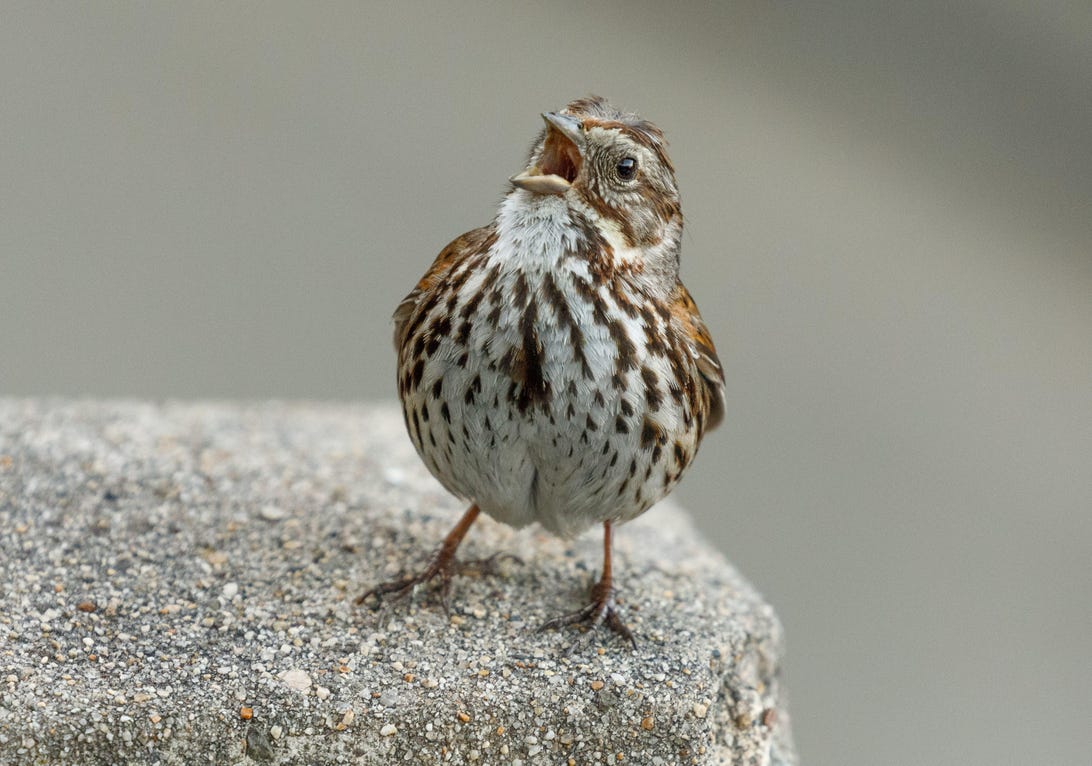
You don’t need to be miles away from civilization to see birds. This song sparrow was singing vigorously in the middle of San Francisco.
Stephen Shankland/CNETA new study on bird “playlists” is making me feel very connected to male song sparrows. The birds curate and shuffle their song selections in a surprisingly complex manner, researchers discovered, tracking how long and how often they sing the songs in their repertoire. They’re a lot like me, obsessed with songs, but trying not to burn out on the same tunes.
The North American songbirds are known for their chipper and enthusiastic vocal exercises. The males use songs to attract females, and they put a lot of effort into the crooning. Remarkably, they can also track the order and frequency of their songs for up to 30 minutes.
The song sparrows cycle through 12 distinct two-second songs, but will often string the same song together multiple times, essentially putting it on repeat (you can listen to some of them on eBird). A team of researchers from the University of Miami and Duke University wanted to know if what appeared to be discography-tracking was accidental or on purpose. The group published a study on the topic in the Proceedings of the Royal Society B journal on Wednesday.
The study involved a whole lot of field work recording song sparrows in Pennsylvania for hours at a time. “The first clue that males keep tabs on their tweets to avoid repetition was that much like a Spotify playlist, males generally sing through their full repertoire before repeating a song,” Duke said in a statement.
The researchers found notable patterns in the bird songs. If a particular song got a lot of repeats, the sparrow would wait longer to slip it back into the playlist. If the song was only repeated a few times, then it would pop back into the playlist sooner.
The team describes this as “an extremely rare talent” called “long-distance dependencies.” “It means that what a male song sparrow sings in the moment depends on what he sang as much as 30 minutes ago,” the university explained. That’s an impressive time span to cover. Duke noted the previous record holder was the canary, which can handle only about 5 seconds of this kind of song information.
The researchers suggest the shuffling ability of song sparrows might be connected to attracting females and convincing them to stick around as mates. Perhaps being able to offer variety in the way songs are presented is an attractive feature if you’re a sparrow. Might work for humans, too.


